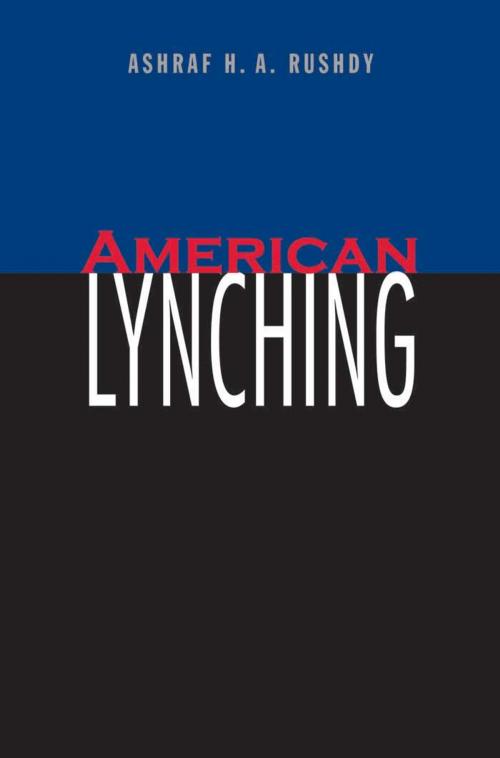American Lynching
Nonfiction, Social & Cultural Studies, Social Science, Discrimination & Race Relations, History, Americas, United States| Author: | Ashraf H. A. Rushdy | ISBN: | 9780300184747 |
| Publisher: | Yale University Press | Publication: | October 30, 2012 |
| Imprint: | Yale University Press | Language: | English |
| Author: | Ashraf H. A. Rushdy |
| ISBN: | 9780300184747 |
| Publisher: | Yale University Press |
| Publication: | October 30, 2012 |
| Imprint: | Yale University Press |
| Language: | English |
After observing the varying reactions to the 1998 death of James Byrd Jr. in Texas, called a lynching by some, denied by others, Ashraf Rushdy determined that to comprehend this event he needed to understand the long history of lynching in the United States. In this meticulously researched and accessibly written interpretive history, Rushdy shows how lynching in America has endured, evolved, and changed in meaning over the course of three centuries, from its origins in early Virginia to the present day.
Rushdy argues that we can understand what lynching means in American history by examining its evolution—that is, by seeing how the practice changes in both form and meaning over the course of three centuries, by analyzing the rationales its advocates have made in its defense, and, finally, by explicating its origins. The best way of understanding what lynching has meant in different times, and for different populations, during the course of American history is by seeing both the continuities in the practice over time and the specific features in different forms of lynching in different eras.
After observing the varying reactions to the 1998 death of James Byrd Jr. in Texas, called a lynching by some, denied by others, Ashraf Rushdy determined that to comprehend this event he needed to understand the long history of lynching in the United States. In this meticulously researched and accessibly written interpretive history, Rushdy shows how lynching in America has endured, evolved, and changed in meaning over the course of three centuries, from its origins in early Virginia to the present day.
Rushdy argues that we can understand what lynching means in American history by examining its evolution—that is, by seeing how the practice changes in both form and meaning over the course of three centuries, by analyzing the rationales its advocates have made in its defense, and, finally, by explicating its origins. The best way of understanding what lynching has meant in different times, and for different populations, during the course of American history is by seeing both the continuities in the practice over time and the specific features in different forms of lynching in different eras.















